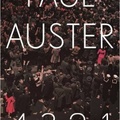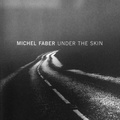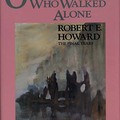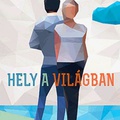Will Self: Dorian
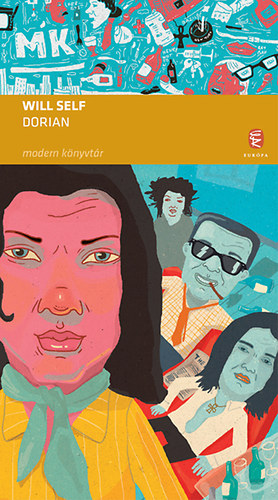 This is just another novel I wanted to read because I loved its cover at first sight. I mean the cover of the Hungarian edition, which is so colorful, loud and funny that I bought the book immediately, because I thought that a book with such a fantastic cover cannot possibly be a bad read. However, I didn’t want to read Dorian without the proper preparations, therefore first I re-read Wilde’s The Picture of Dorian Gray and only then did I get around to Will Self’s cover of Wilde’s story. (This post contains spoilers and is slightly vulgar.)
This is just another novel I wanted to read because I loved its cover at first sight. I mean the cover of the Hungarian edition, which is so colorful, loud and funny that I bought the book immediately, because I thought that a book with such a fantastic cover cannot possibly be a bad read. However, I didn’t want to read Dorian without the proper preparations, therefore first I re-read Wilde’s The Picture of Dorian Gray and only then did I get around to Will Self’s cover of Wilde’s story. (This post contains spoilers and is slightly vulgar.)
According to the author’s words, Dorian is an „imitation”, and this word made me think naively that Will Self must have simply taken the story of Dorian Gray and imagined what kind of novel The Picture of Dorian Gray would have been, had it been written a hundred years later.
And Self did this, for sure, and the main characters and events of Dorian can easily be traced back to the main characters and events of The Picture of Dorian Gray. However, the decadent lifestyle of the 1880s was very much different from that of the 1980s. For Wilde’s protagonist, decadence means that he seduces inexperienced young actresses or village girls; collects useless exotic knick-knacks; spends his time spurting out witticisms and nicely ambiguous sayings all day; and occasionally visits dingy opium dens. However, for Self’s Dorian, decadence is something else entirely: Self's protagonist is a gay drug addict whose corruption lies in his habit of engaging in casual sex and deliberately infecting his partners with HIV. And while his contemporaries die one by one, Dorian remains young and healthy.
It may seem a tasteless, cheap joke to make gay drug-users out of Dorian and all the other main characters, but I think this way Will Self makes the contemporary reader experience feelings which might closely resemble the feelings 19th century readers experienced while reading The Picture of Dorian Gray. As we all know, The Picture of Dorian Gray was deemed a wild, scandalous, immoral book in its own time – but would we be outraged today if we read about a rich pretty-boy who seduces women and collects Eastern stuff? I don’t think so. However, I suppose we may still feel some shock if we read about the ways a couple of drug addicts destroy themselves or if we learn about some of the sexual acts of the characters.
So, as regards the modernisation of The Picture of Dorian Gray, Will Self definitely succeeded. However, Dorian is not only the modernisation/imitation of Wilde’s novel: Self goes further than this when he depicts those things which were left out from The Picture of Dorian Gray. If you know Wilde’s novel you may remember that we don’t learn too much about the exact details of Dorian Gray’s debauchery. We learn how he started out on his road to depravity, and we learn about the end of this road, however, the circa ten years in-between are mostly left in the dark. There is only one long (and – to many readers – rather tedious) chapter where we learn that young Dorian entered upon the road of self-destruction, started out on a futile quest for beauty, only lived for his passions, and he was even capable of the shamefully decadent deed of purchasing nine copies of his favourite novel and having each of them bound in different colours so that he could always read the copy with the cover which perfectly suited his mood.
As opposed to Wilde, Will Self doesn’t shy away from the depiction of Dorian’s wild years: he lets the reader know in great detail (perhaps too great detail) exactly what activities Dorian engaged in so that he deserved the epiteth „corrupt”. At some points I thought that a couple less episodes depicting drug abuse and anal sex would have been sufficient to indicate the infamous decadence of Dorian & co., but every time I was beginning to feel that Self was going too far and was starting to wallow in dirt just for wallowing’s sake, something funny or strange always happened which made me change my mind.
Because basically Dorian is a very entertaining and ironic novel. First of all, Self makes fun of both Oscar Wilde’s views about art and the ridiculous features of the characters of The Picture of Dorian Gray. Besides, he interprets the events and the behaviour of the original characters, he parodies and exaggerates the aristocratic details and episodes of the original, and he also makes very funny, wry comments about the habits of the characters (for instance, he remarks about Henry Wotton – who has a penchant for speaking in French all the time – that he never uses an English word to say something if there is a French word for it, and even though this is only a trifling detail, given Lord Henry’s personality, his obsessive wittiness and the undoubtable mannerisms of the original novel, this is indeed a clever and funny observation).
And then there’s the epilogue which makes the novel even more intriguing: it is in the epilogue that the identity of the narrator is revealed, and Dorian’s corruption is shown in a totally different light. So even if I had hated the novel up to this point, this tricky and clever epilogue would have made me like it, that’s for sure.
By the way, it’s not easy to say whom I would recommend this novel to. To be able to appreciate Dorian, it’s necessary to know The Picture of Dorian Gray relatively well – and not only the storyline, but also Wilde’s style, his choice of words and the philosophic-esthetic views he elaborates on in the novel. However, to be able to enjoy Dorian it’s preferable not to love The Picture of Dorian Gray too much, as it could be quite annoying or shocking to see the protagonists of the original so very ugly and vile – because compared to Self’s characters, the characters in the original seem to be truly innocent and nice. Fortunately, I happen to like The Picture of Dorian Gray mostly with my brain and not with my heart, so Dorian proved to be a thoroughly enjoyable read for me.

